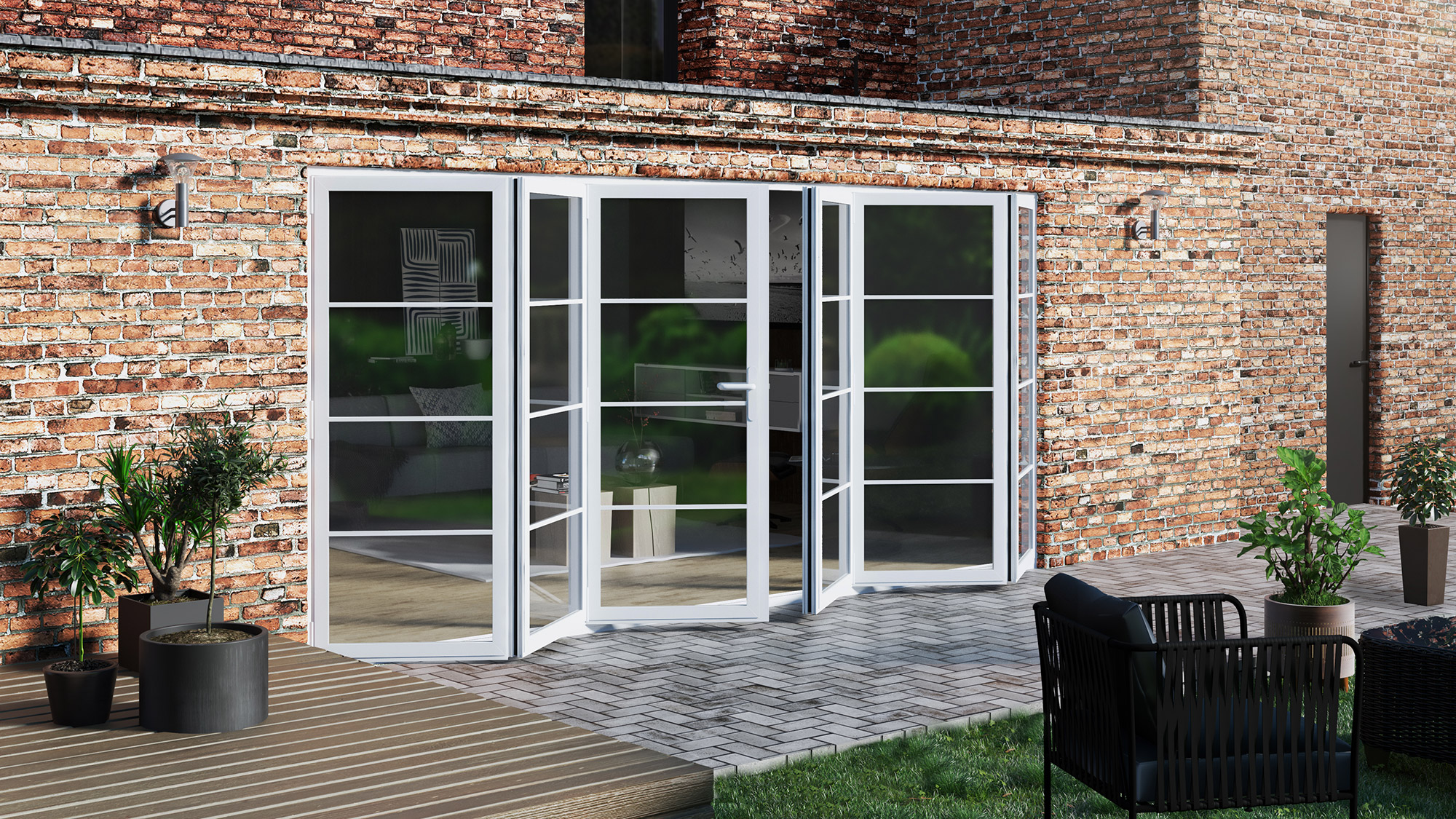
Imagine transforming your living space with a single motion — folding back a sleek wall of glass and inviting the outdoors in. That’s the magic of bi-folding doors. Perfect for homes, offices, cafés, and shops, bi-folding doors combine style, functionality, and flexibility. In this guide, we’ll explore what bi-folding doors are, their benefits, and how to choose the right one for your space.
Table of Contents
| Sr# | Headings |
|---|---|
| 1 | What Are Bi-Folding Doors? |
| 2 | How Do Bi-Folding Doors Work? |
| 3 | Benefits of Installing Bi-Folding Doors |
| 4 | Popular Materials for Bi-Folding Doors |
| 5 | Where Can You Use Bi-Folding Doors? |
| 6 | Energy Efficiency and Weather Performance |
| 7 | Security Features of Bi-Folding Doors |
| 8 | Customisation Options |
| 9 | Bi-Folding Doors vs. Sliding Doors |
| 10 | Maintenance and Care Tips |
| 11 | How Much Do Bi-Folding Doors Cost? |
| 12 | Installation Process Explained |
| 13 | Choosing the Right Supplier |
| 14 | Planning Permission and Building Regulations |
| 15 | Conclusion: Transform Your Space with Bi-Folding Doors |
What Are Bi-Folding Doors?
Bi-folding doors (also called folding sliding doors or concertina doors) consist of panels that fold and slide along a track, stacking neatly to one or both sides of an opening. They offer wide, unobstructed access between indoor and outdoor spaces.
How Do Bi-Folding Doors Work?
The panels are connected by hinges and run along a bottom or top track. As you push the door, the panels fold and slide together smoothly, like an accordion, creating a large opening without bulky frames.
Benefits of Installing Bi-Folding Doors
Why are bi-folding doors so popular?
-
Maximise natural light
-
Create seamless indoor-outdoor living
-
Save space — panels fold away compactly
-
Add value to your property
-
Flexible opening options (open one panel or all)
It’s like turning your wall into a window to the world!
Popular Materials for Bi-Folding Doors
Common choices include:
-
Aluminium — strong, slim frames and low maintenance
-
uPVC — affordable and durable, though with thicker profiles
-
Timber — warm, traditional look (needs more upkeep)
Where Can You Use Bi-Folding Doors?
Perfect for:
-
Patio or garden access
-
Extensions and orangeries
-
Room dividers in open-plan living
-
Commercial entrances (cafés, shops)
Energy Efficiency and Weather Performance
Modern bi-folding doors feature:
-
Double or triple glazing
-
Thermally broken frames
-
Weather seals to keep out draughts and rain
Helping you stay warm in winter and cool in summer!
Security Features of Bi-Folding Doors
Top designs include:
-
Multi-point locking systems
-
Toughened or laminated glass
-
Secure tracks and rollers
Keeping your home safe without compromising on style.
Customisation Options
Bi-folding doors can be tailored to your taste:
-
Frame colours and finishes (RAL options, woodgrain, metallic)
-
Glazing types (clear, frosted, tinted)
-
Panel configurations (3, 4, 5, 6+ panels)
-
Integrated blinds
Bi-Folding Doors vs. Sliding Doors
Both are great — but different:
-
Bi-folding doors stack panels to the side for a full opening.
-
Sliding doors have larger glass areas but smaller openings.
If you want to fully open up your space, bi-fold is the winner.
Maintenance and Care Tips
Keep your bi-folding doors in top shape by:
-
Cleaning frames and glass regularly
-
Lubricating tracks and hinges every few months
-
Checking seals for wear
How Much Do Bi-Folding Doors Cost?
Prices vary, but as a guide:
-
Aluminium bi-folds: £1,500–£3,000+ per linear metre
-
uPVC bi-folds: From £1,000 per linear metre
-
Timber bi-folds: £2,000–£3,500+ per linear metre
Custom features and installation can affect the final cost.
Installation Process Explained
-
Survey and design consultation
-
Manufacture to your specs
-
Professional installation (typically 1-2 days)
-
Final adjustments and handover
Choosing the Right Supplier
Look for:
-
Good reputation and reviews
-
Accreditation (FENSA, CERTASS)
-
Warranty on products and installation
-
After-sales support
Planning Permission and Building Regulations
You usually don’t need planning permission for bi-folding doors — unless part of a larger extension. Always ensure your doors meet building regs for energy efficiency and safety.
Conclusion: Transform Your Space with Bi-Folding Doors
Bi-folding doors are more than just doors — they’re a lifestyle upgrade. With their clean lines, flexibility, and ability to flood your home with light, they’re the perfect way to modernise and open up any space. Ready to make the change? A brighter, bigger-feeling home awaits.



